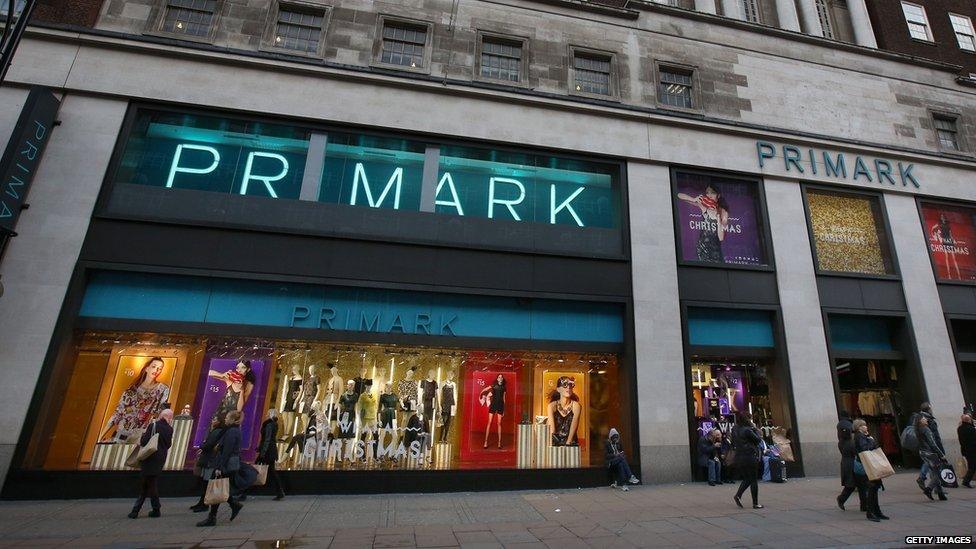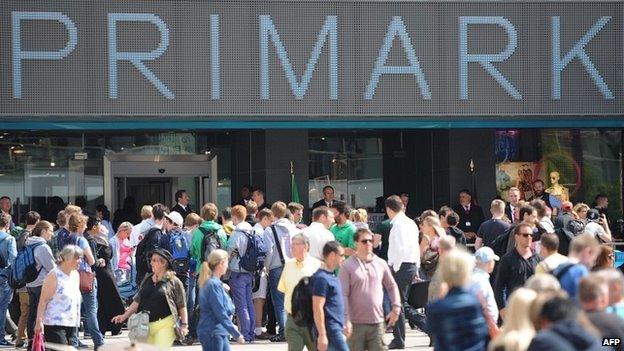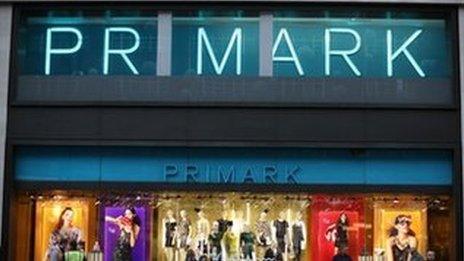Primark sales ease pain of ABF profit slump
- Published

Primark expects sales up 13% this year
Falling profits across Associated British Foods' (ABF) operations have been rescued by booming sales at its budget retailer Primark.
ABF said in its latest trading update that the strength of the pound had cut its profits by some £30m. It has also been hit by the falling price of sugar.
But Primark sales are expected to have risen some 13% over its last financial year, which ends on 12 September.
The retailer contributes more than half of ABF's annual profit.
Much of the growth has come from opening new stores in the Netherlands, Germany, France and Spain.
The company said that all stores that had opened in the last 18 months had "very high sales densities", while France was its most successful new market this year.
Primark is preparing to open its first US store in the historic Burnham building in Boston on Thursday and another near Philadelphia before Christmas.
It will have opened almost one million sq ft of selling space over the last 12 months, bringing its total to 293 stores.
Sugar woes
However, the strong dollar made purchases for the new autumn and winter range more expensive and reduced the company's margins.
Keith Bowman, equity analyst at Hargreaves Lansdown stockbrokers, said that despite the new store openings, growth at Primark was not as rapid as had been hoped.
He said: "Expected full-year like-for-like sales growth for its Primark retail business is down year over year (1% versus 4.5%), hit by unseasonal spring and autumn weather. Increased markdowns at Primark have also reduced the operating profit margin."
ABF's trading update, released on Monday, stuck with its full-year profit forecast, saying it still expected a "modest" decline in group adjusted earnings, much of it due to the fall in the sugar price.
Its grocery, ingredients and agriculture divisions also helped reduce the impact of falling profits from sugar.
Sugar has hit six-year lows, but the company said: "Prices in the EU have now stabilised and with quota stock levels reducing back towards historic norms, we expect to see some price recovery during 2015/16."
It admitted that if the pound stayed strong, it would continue to affect profits next year as well.
- Published8 September 2014

- Published18 June 2015

- Published21 April 2015
